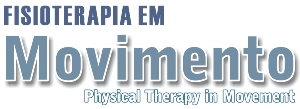Abstract
Introduction:
Physiotherapy was included in primary health care (PHC) in order to expand access and provide comprehensive care to the population.
Objective:
To understand the routine and tools used by physiotherapists in primary health care and analyze the determining factors in providing care in a municipality where every basic health unit (BHU) has a physiotherapist.
Methods:
This is a qualitative study of nineteen physiotherapists conducted in a city of Southern Brazil, using a semistructured interview and a methodological framework for discourse analysis.
Results:
The main tools routinely used in the physiotherapy service are individual appointments, home visits and group work. Physiotherapy practices are influenced by public health, municipal management and BHU policies, physiotherapy profile in addition to the characteristics of the coverage area and the population being treated. Introducing health promotion measures and implementing relational technologies are the main challenges for physiotherapists, and many of these professionals already recognize their importance in promoting comprehensive care.
Conclusion:
Physio-therapy practices and the tools used are in line with the Primary Care Family Health Support Center (NASF-AB) model of action recommended by public policies and have been effective for many health conditions. Knowing the routine of PHC physiotherapy services may help professional training and service management, with a view to producing physiotherapy care aimed at the principle of comprehensiveness and consolidating the role of physiotherapists at this level of care.
Keywords:
Comprehensive health care; Physiotherapy; Primary health care; Professional practice; Public health policies
